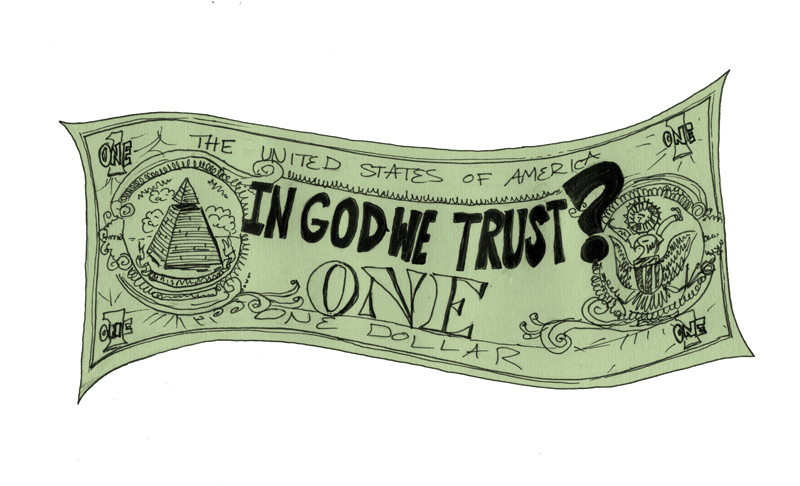Gloria in excelsis market
Praying at the alter of the profit motive
I’m sure you’ve heard Friedrich Nietzsche’s overused and misunderstood statement that “God is dead.” It continues: “God remains dead. And we have killed him.”
The Christian God has been dead and buried for quite some time.
The emergence of the secular state, the rejection of Christian institutional values and the skepticism of the postmodern age have killed Christianity, making it nothing more than a farce of its original form or a nostalgic longing for simpler times.
But that does not mean that we are no longer religious; far from it.
The death of one particular god left a chasm – a chasm that two competing gods fought over during the course of the 20th century.
One god, armed with a hammer and a sickle, crumbled and fell apart in the wake of the new almighty.
The new almighty’s prophets proclaimed the triumph of their god and the infallibility of his word.
They went around the world proclaiming this word – the word of their god, the market. They travelled to Britain, the United States and Canada, and then to Russia, Vietnam and China.
Like the Christian God’s prophets, they could turn staffs into snakes, lepers into the healthy and water into wine. But they could also turn poor into rich and rags into riches.
“Put your faith in market and his invisible hand shall set you free!” was their rallying cry.
The poor believed the prophets of profit and they accepted this new religion, neoliberalism, as their own.
But the idea of the market was nothing more than a scam, covered by a glossy veneer of happiness and prosperity.
“ With a hearty “Amen,” the people signed over their forests, their rivers and their lives
The new high priests – big bankers, media moguls and CEOs – wanted tribute for gaining the market’s favour for the people. Unlike the high priests of the Christian God, they did not simply demand gold, silver and sacrifice for their services.
They demanded more.
They said they required government bailouts, military protection and exemptions from taxation.
They said they needed less government intrusion, lower workplace standards and less environmental regulation.
They said they needed more resources, cheaper labour and, above all else, more efficiency.
And the people agreed. With a hearty “Amen,” the people signed over their forests, their rivers and their lives.
The people had been duped.
Empty promises of wealth, vanity and beauty had blinded their eyes. Lies, half-truths and equivocation had deafened their ears. Advertisements, propaganda and television had distorted their minds.
But faith in the market began to wane, just as faith in God before it.
Economic meltdowns, global poverty and environmental catastrophe began to sow the seeds of doubt in the hearts and minds of the people.
And so we stand, in the present, with nothing to lose but illusion and nothing to gain but truth.
Gregory Furmaniuk is a first-year student at the University of Winnipeg.
Published in Volume 65, Number 9 of The Uniter (October 28, 2010)







